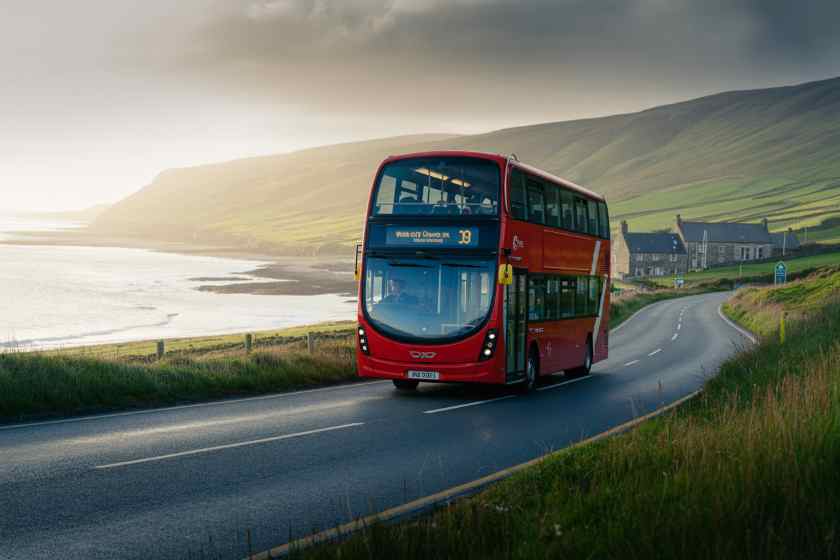Published on
September 5, 2025
Transport for Wales has formally awarded its nationwide transit intelligence contract to Snapper Services, entrusting the nationwide roll-out of the Mosaiq Transit Intelligence Suite, a decisive milestone for the strategic evolution of public transport throughout Wales. This selection, which follows a rigorous, transparent procurement procedure, reaffirms the organisation’s ongoing dedication to leveraging sophisticated data-driven resources to elevate operational efficiency, reinforce sustainability, and maximise overall system performance.
The Mosaiq suite, conceived at Snapper Services, will furnish TfW with superior transit intelligence capabilities, empowering the authority to oversee services while guiding strategic choices with empirically substantiated, real-time data. This comprehensive implementation is intended to underpin forthcoming franchising arrangements and directly support TfW’s enduring vision for a public transport landscape which is notably more adaptable, effective, and customer-centric throughout Wales.
Modernising Wales’ Public Transport Infrastructure
The planned roll-out of Mosaiq aligns squarely with TfW’s intention to modernise and strategically optimise transport services throughout the nation. Growing public expectation for low-impact, highly-efficient transport solutions necessitates the systematic integration of advanced technology and progressive data analytics into the ongoing evolution of the transport network in Wales. By delivering precise analytical capabilities, Mosaiq will enable TfW to reveal, at a national scale, the dynamics of travel behaviour, to discern service shortcomings, and to adopt judicious, evidence-led adjustments that systematically elevate the passenger experience.
Utilising real-time data streams, Mosaiq empowers public transport providers to discern demand variances, refine service paths, and alleviate peak crowding. The technology simultaneously enhances passenger communication by delivering precise and punctual updates on service alterations, delays, and timetable adjustments. Collectively, these functionalities are set to yield a more seamless and dependable travel experience across buses, trains, and complementary transport services in Wales.
The Intelligence-Making Advantage
Central to Mosaiq is its capacity to convert unprocessed data into operationally relevant knowledge. By ingesting and sifting considerable volumes of travel data from diverse origins, the system furnishes Transport for Wales (TfW) with the analytical underpinning necessary for informed, performance-enhancing operational decisions. By rendering data actionable on an ongoing basis, Mosaiq fortifies TfW’s preparations for forthcoming transport franchising in Wales, supplying comprehensive insight into operational patterns and user experience.
The platform’s analytical suite will reveal growth prospects, evaluate the success of pilot measures, and pinpoint service adjustments required for elevating customer experience. Its design also accommodates progressive scaling to address the inherent and increasing complexities of Wales’s transport system, thus allowing TfW to leverage forthcoming capabilities and technological advances as the network matures.
Supporting Wales’ Tourism Through Efficient Transport
This national deployment extends well beyond enhancing local commute patterns for everyday travellers. By streamlining public transport design, Mosaiq will provide a parallel, yet equally significant, uplift for the Welsh visitor economy. Reliable, well-timed transport underpins the national strategy for visitor retention; high-quality connectivity paired with live, location-aware updates enables guests to move confidently between the region’s diverse experiences, from the Welsh valleys to the coast.
Wales’ rich tourism repertoire encompasses attractions as diverse as the historic arcades of Cardiff, the rugged ridges of Snowdonia, and the dramatic coastline of Pembrokeshire. For visitors, the feasibility of seamless, integrated public transport can dictate itinerary quality and, by extension, overall satisfaction. Mosaiq’s analytical capabilities will therefore allow Transport for Wales to calibrate service delivery across fixed and on-demand networks, guaranteeing the intuitive, multifaceted journeys required by both residents and inspirational visitors.
Beyond visitor comfort, the deployment also promises a careful calibration of sustainability principles by nudging travellers to the greener option of public transport. Through real-time modelling of visitor flows, TsW can adjust vehicle frequencies, adjust fast service pairing and unlock promotional, off-peak tickets for Wales’ marquee attractors.
Conclusion
The introduction of Mosaiq exemplifies a larger worldwide movement in which advanced technologies are becoming indispensable in the transformation of public transport. In the face of escalating demographic pressures and mounting climate imperatives, municipalities and nations are recognising that intelligent-data frameworks are no longer optional but rather a prerequisite for the delivery of reliable and ecologically sound transport modalities.
For Wales, the strategic deployment of such technological infrastructures guarantees that public transport systems will not only retain market relevance but will operate with a degree of dynamism and resilience that anticipates yet-to-emerge consumer and regulatory demands. Mosaiq thereby serves as a tangible case study of how sophisticated data ecosystems are redrawing the contours of urban mobility, generating actionable intelligence and proactive interventions that confer quantifiable advantages upon users, operators, and the wider biosphere alike.
